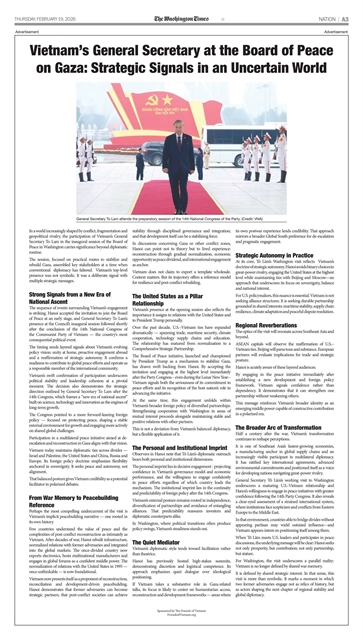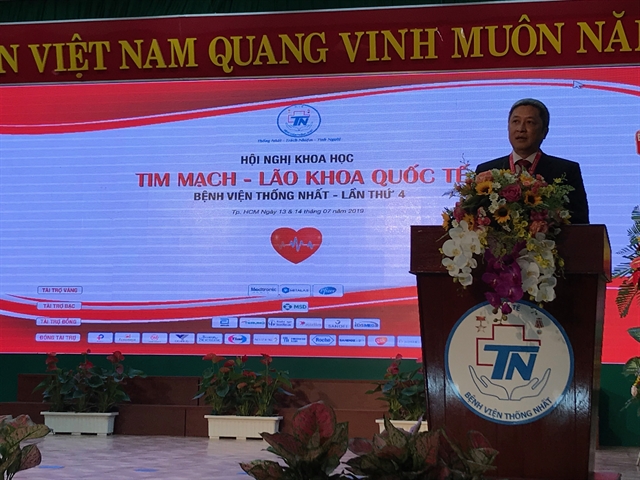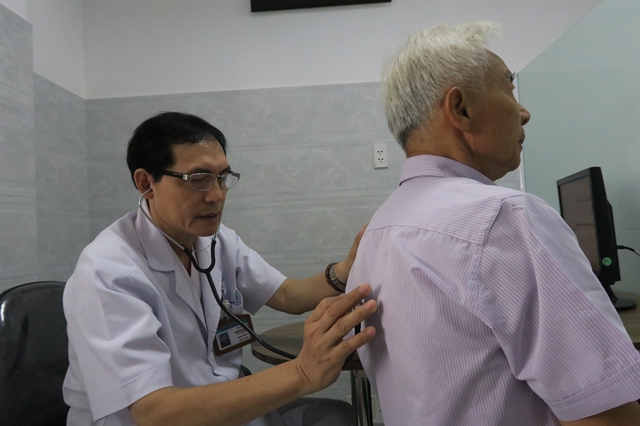 Society
Society


|
| Deputy Minister of Health Nguyễn Trường Sơn speaks about the progress made in treating diseases, including aged-related ones, at a conference in HCM City on Saturday. VNS/Photo.Gia Lộc |
HCM CITY— Many hospitals in the country are using advanced industry 4.0 technologies to diagnose and treat ailments, helping improving healthcare, Deputy Minister of Health Nguyễn Trường Sơn said.
Some of them, such as artificial intelligence in cardiology, were presented at the 4th International Conference of Geriatrics and Cardiology held over the weekend (July 13-14) at HCM City’s Thống Nhất Hospital.
Bedless, virtual care hospitals were also discussed at the conference.
Sơn said the conference would update doctors on the latest techniques in treating age-related diseases, adding: “Việt Nam will become one of the countries with an ageing population by 2025. It will have to face aged-related diseases.”
Nguyễn Đức Công, head of Thống Nhất Hospital, said research into the effectiveness of new therapies for diseases like heart failure, diabetes, metabolic syndrome, and others were presented at the conference.
"The new, non-invasive shock wave therapy is effective for patients with chronic ischemic heart disease who cannot be operated on," he said, adding it is being used at his hospital.
Lê Bảo Huy of the hospital’s emergency department, said diagnostic testing had progressed enormously, with tests being done near patients’ beds instead of at laboratories to quickly provide diagnostic results.
“At emergency departments, such rapid testing, following the 4-hour rule for emergency care and putting patients first help reduce overcrowding and make treatment more effective.”
Many emergency departments are overloaded meaning patients need to wait, causing their condition to worsen, according to Huy.
His hospital admits many seniors for emergency treatment with chronic and severe ailments, many brought late.
The department staff face intense pressure to treat people during the golden hours.
The department has seen an increase in the number of patients.
It admits 130 patients daily, or 40-60 per cent of all inpatients. VNS

|